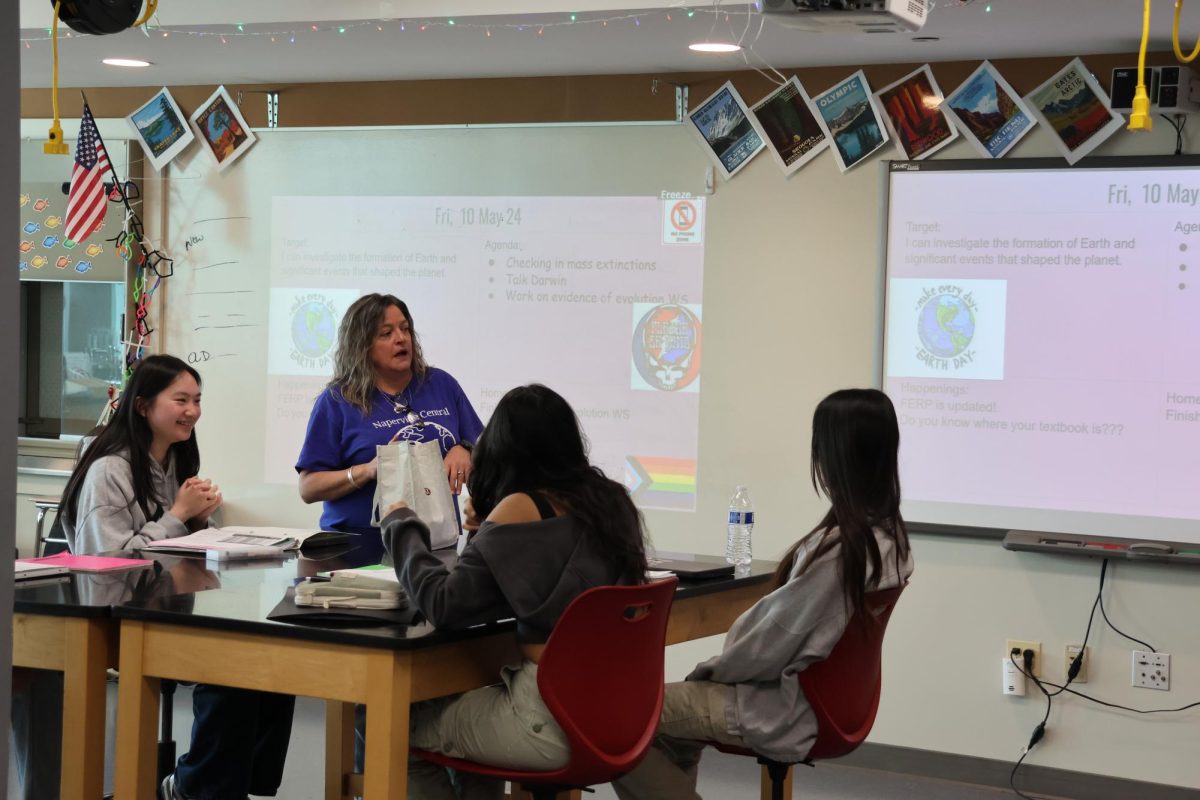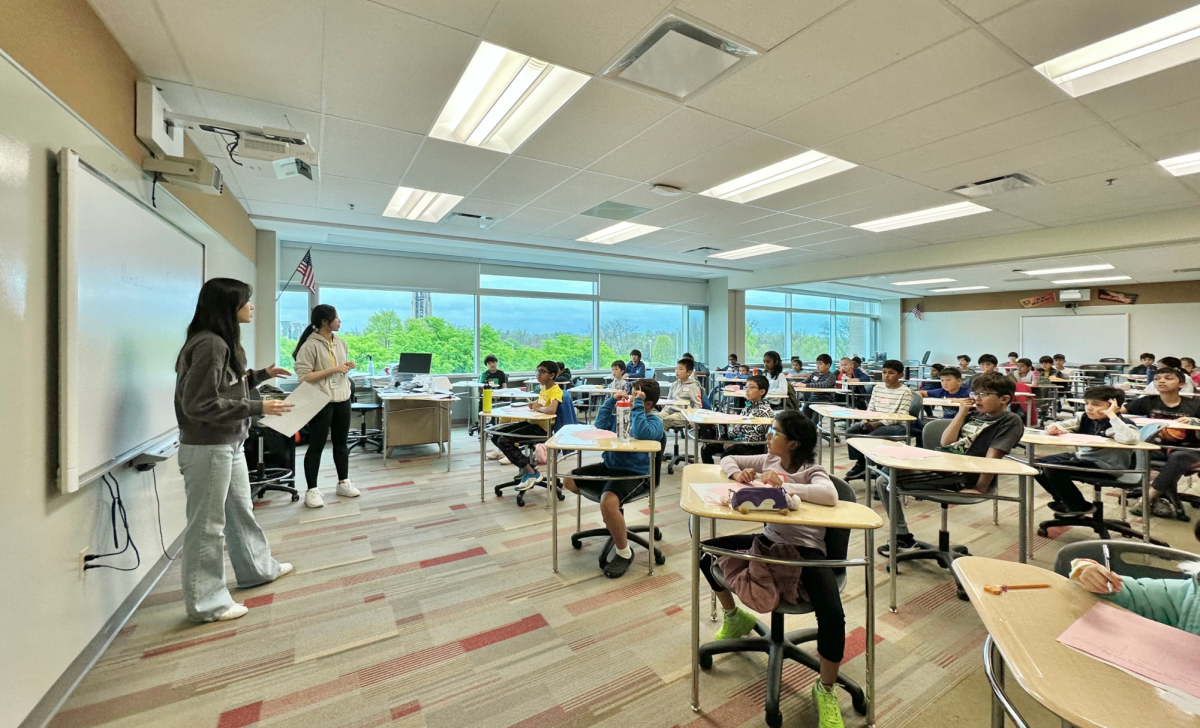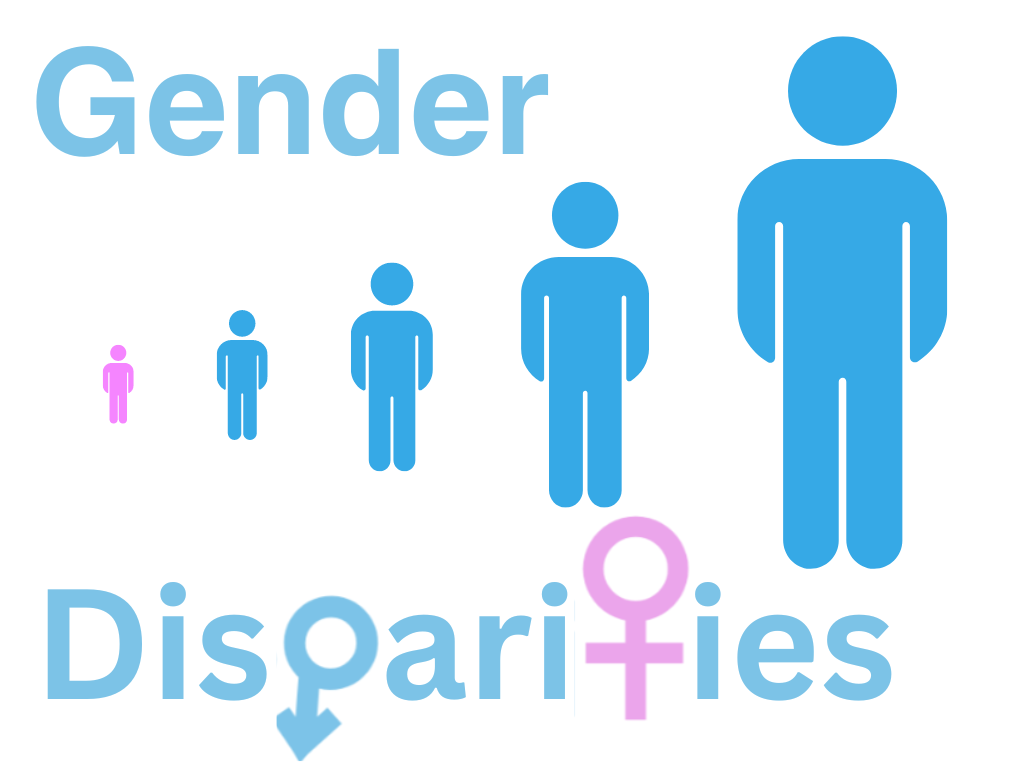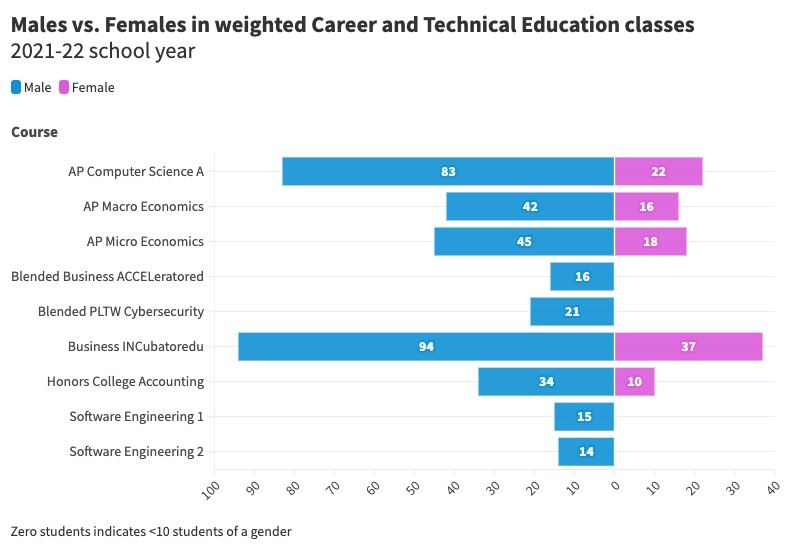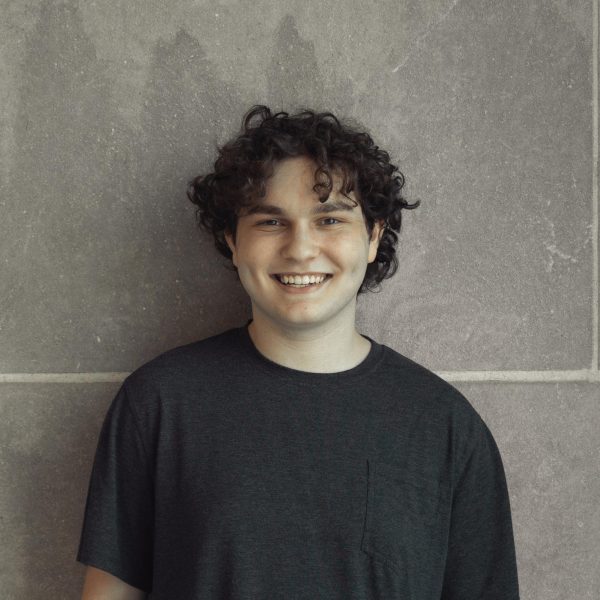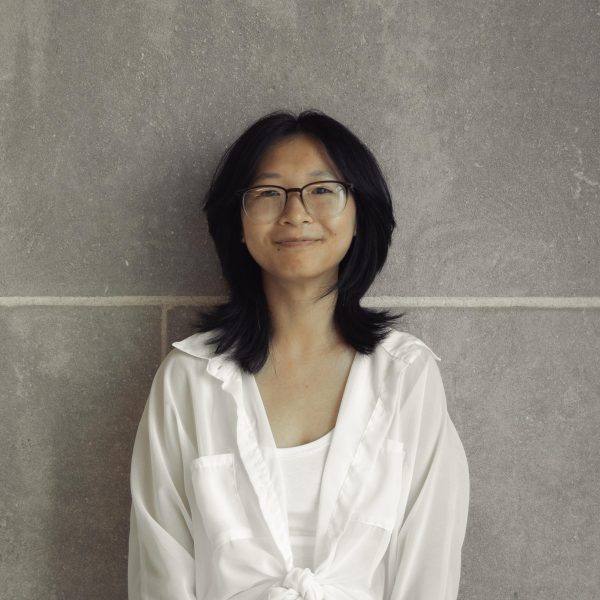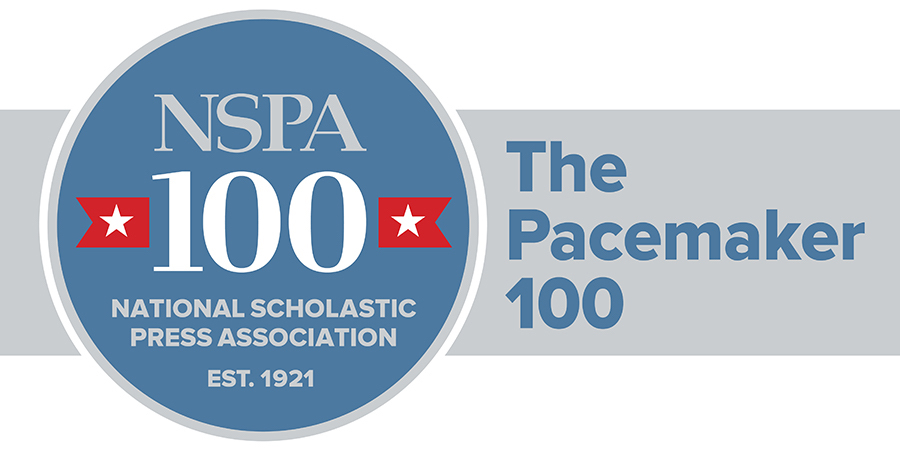For seniors like Luoxu Chen, being surrounded by men has become the norm in advanced courses like AP Computer Science A and Multivariable Calculus. These classes prepare students for industries that are dominated by men. But even at the high school level, classes are also majority male with low female enrollment.
Women take weighted Career and Technology Education (CTE) courses at a disproportionately lower rate compared to men, according to 2021-22 data from District 203.
District 203 defines a student’s gender as anyone who identifies as female, male or neither. The CTE department’s weighted courses are 23.37% female and 76.63% male, numbers substantially disproportionate to the school’s 52.5-47.3-0.2% split along those same gender groups.
Classrooms with different groups and types of students have different perspectives, which benefits their curricular and social-emotional learning, according to CTE teacher Derek Miller, who completed his doctorate dissertation on gender disparities in computer science.
“If you don’t have a diverse group, you’re going to miss things in your software,” Miller said. “This wasn’t software, but in terms of gender inequity, very early on when airbags were first developed, they ended up killing women and children. The reason that happened is because all of the [male] engineers who were working on airbags, made crash test dummies model after themselves, so they didn’t think to test it out on people who might be built more like women or children.”
Currently, most weighted classes in CTE are male-dominated.
“I think perhaps the minority gender might feel like they’re singled out in a way because they’re unique in that classroom,” CTE department chair Lynn Andrees said. “I could see where there could be some social-emotional questions that they might have, like, ‘Why am I the only male and in a typically female classroom’ or ‘Why am I the only female in a male-dominated classroom?’”
Senior Athena Chen has taken a multitude of weighted CTE courses in her time at Central. The differences by gender usually ranged from somewhat noticeable to super apparent.
“In the beginning, it definitely made me uncomfortable going into my accounting class and seeing it was only guys,” Chen said. “I just felt like I was surrounded by finance bros. But I feel like it’s just like that in the workforce, and it’s kind of something you just have to get used to. If anything, it’s more of a motivation to keep going.”
The issue of female enrollment has not gone unnoticed by the CTE department. What makes this problem difficult to solve is the same industries they are preparing students for are also often perpetuating gender norms, according to Andrees.
However, this does not mean the CTE department hasn’t made strides to help remedy the issue.
“We did a lot of equity training,” Andrees said. “I think it was having teachers, first of all, look at their own implicit bias and trying to learn about that, then understanding where students are and [understanding] their feelings socially [and] emotionally so that we could work with students in our classrooms better and in the whole school.”
Through his dissertation, Miller discovered different ways to help combat the female enrollment problem. One way to do this is through changing the curriculum.
“Part of it is showing the connection of computer science to the real world, not just focusing on puzzles and math type of stuff,” Miller said. “Showing that computer science can apply to just about any other field.”
The CTE department tries to implement this real-world connection learning as much as possible in their courses, but it is usually seen mostly once students get to later courses like software engineering where students are involved in big projects that apply to the world.
While Central still has room to improve, it is also better than many surrounding communities.
“I think we have a lot of parents, like mothers, in the district who are in computer science,” Miller said. “So I think that is part of the reason why we don’t have as big a disparity as some other schools might.”
Chen said that the difference between the number of males and females in her AP Computer Science class wasn’t too drastic, but still impacted her.
“I noticed it when you have to pick partners because normally, it’s easier for the two [of the same] genders to pair up,” Chen said. “I don’t know why, but [it just is]. And so then it’s difficult when you’re trying to pick a partner because there’s so many boys.”
Unlike weighted CTE courses, the science department has one of the most gender-balanced departments when it comes to their weighted courses. The science department has 49.42% female and 50.58% male enrollment.
Science department chair Dan Olandese said the science and CTE departments are like apples and oranges, and they are not comparable in this way.
“Some other departments have offered a lot more specialized [courses where] the number of electives is greater,” Olandese said. “The variety of classes that CTE offers is far greater than [science] and probably always will be. Because you offer such a great variety, you have lower individual enrollment in classes because you have so much more to pick from as opposed to science for like freshman and sophomore year.”
The gender disparities that exist in weighted courses extend beyond the classes and into extracurriculars.
“I think it doesn’t even have to be curricularly because I used to be part of Wall Street society, which was like an investing club, and I think it might have died because I quit last year, but it was literally all guys, and I was the only,” Chen said. “But doing more extracurricular stuff, where like sponsoring like girls who invest or like girls in finance clubs, just like [Girls in Engineering, Math and Science] for CTE.
Jake Pfeiffer and Nolan Shen contributed to this story




